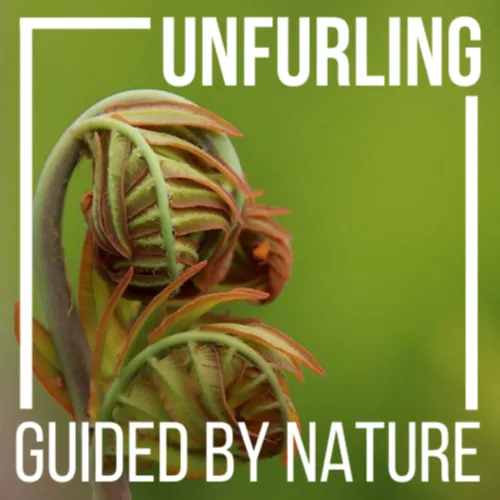Listening: "The Earth Has Music For Those Who Listen"
- Author
- Elizabeth Wainwright & Catriona Horey
- Published
- Sat 12 Sep 2020
- Episode Link
- https://shows.acast.com/unfurling/episodes/the-earth-has-music-for-those-who-listen
Join us as we explore a seemingly simple, yet powerful, subject: listening. We offer a kaleidoscope of lessons, ideas and prompts from the natural world to inform and inspire you as you reflect on the topic of listening – as an individual, organisation, community and world. It's a slightly longer episode than usual -- there was lots we wanted to draw on and share!
In the episode, we touch on:
· How listening is core to our work in international development, local politics and coaching
· Where we see listening working well - and less well
· What's available, and what could be possible, as we listen more deeply to ourselves, each other, and the natural world
· How examples of listening in / to the natural world might help us to think creatively (we draw on bats; owls; evening primroses; dolphins; forests; and ecoacoustics in biodiverse ecosystems)
· What we can learn from collective listening, and silence, including in nature
· Ideas and resources to help you experiment with, enhance, and enjoy your listening
Listeners who wish to dive deeper can join our Facebook group, “Unfurling Podcast”, a community for asking questions and sharing reflections, ideas and resources: https://www.facebook.com/groups/313645743154222/
~~~~~
References:
~1: Undetermined source: “The Earth Has Music For Those Who Listen”.
~6: Bernard Baruch: "Most of the successful people I've known are the ones who do more listening than talking."
~6: Henry David Thoreau: “It takes two to speak the truth - one to speak and another to hear.”
~8: “Levels of Listening” in “Co-Active Coaching - 4th edition” by Henry Kimsey-House, Karen Kimsey-House, Phillip Sandahl, Laura Whitworth
~16: Owl hearing -- https://www.bto.org/our-science/projects/project-owl/learn-about-owls/owl-hearing and bat hearing -- https://www.scientificamerican.com/article/how-do-bats-echolocate-an/
~22: “Flowers can hear buzzing bees—and it makes their nectar sweeter”, National Geographic (https://www.nationalgeographic.com/science/2019/01/flowers-can-hear-bees-and-make-their-nectar-sweeter/)
~26: Film: ‘Climate of Concern’ by Royal Dutch Shell, 1991 https://www.youtube.com/watch?v=0VOWi8oVXmo
~31: “Dolphin Communication”, Dolphin Research Center (https://dolphins.org/communication) and “Dolphin Echolocation”, Dolphins World (https://www.dolphins-world.com/dolphin-echolocation/)
~34: Diogenes Laertius: "We have two ears and only one tongue in order that we may hear more and speak less."
~35: “Nature’s Internet: How Trees Talk To Each Other In a Healthy Forest” by Suzanne Simard (https://www.youtube.com/watch?v=breDQqrkikM)
~43: Listen First Project (http://www.listenfirstproject.org/)
~46: Larry King : "I remind myself every morning: Nothing I say this day will teach me anything. So if I'm going to learn, I must do it by listening."
~47: Fragments of Extinction (https://www.fragmentsofextinction.org/mission/)
~50: “A Wizard of Earthsea” by Ursula K. Le Guin: “For a word to be spoken, there must be silence. Before, and after.”
~50: “The Power of Silence: The Silence That Lies Within” by Richard Turner
~52: “Quiet: The Power of Introverts in a World That Can't Stop Talking” by Susan Cain
~53: Noise level and silent contemplation figures from “NG Live!: The Ragged Edge of Silence” (https://video.nationalgeographic.com/video/00000144-0a37-d3cb-a96c-7b3fbe600000)
~54: Sarah Broscombe and silent retreats (http://sarahbroscombe.com/)
~55: John Francis in “Walk The Earth...My 17-Year Vow of Silence” (https://www.ted.com/talks/john_francis_walk_the_earth_my_17_year_vow_of_silence)
~59: “How To Listen – 10 Expert Tips”, Arukah Network (https://www.arukahnetwork.org/post/211118#!)
~62: Stephen R. Covey: "Most people do not listen with the intent to understand; they listen with the intent to reply."
~63: “Dusk Chorus” documentary (https://www.fragmentsofextinction.org/dusk-chorus-film/)
~65: Dorothy Sarnoff: "Make sure you have finished speaking before your audience has finished listening.”
Hosted on Acast. See acast.com/privacy for more information.
